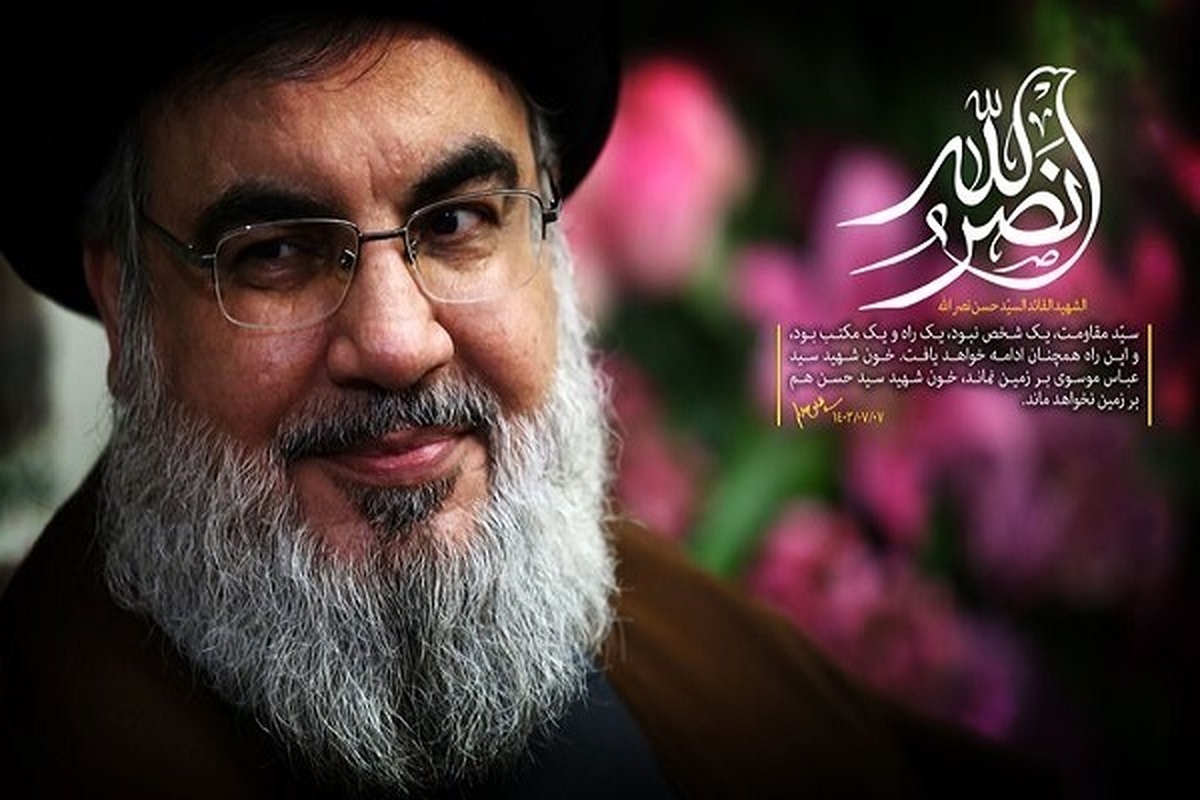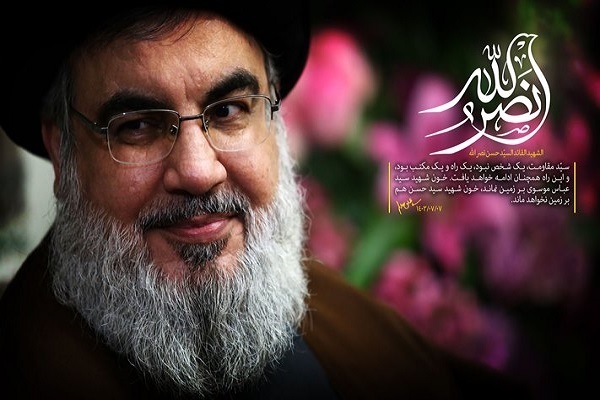Martyrdom A Conscious Heroism, Syrian Analyst Writes on Nasrallah Martyrdom Anniversary


“There is a connection between courage and heroism in consciousness, a connection between courage and consciousness in culture, and a connection between culture and consciousness in belief. Therefore, martyrdom is a conscious heroism and faith in an ideal that is aroused in the human conscience,” Nizam Mardini wrote in an article about Sayed Hassan Nasrallah on the first anniversary of the former Hezbollah leader’s Martyrdom.
The article is as follows:
Writing about the martyr Sayed Hassan Nasrallah on the first anniversary of his martyrdom is a kind of resistance and dependence that we bear despite the pain of his loss.
This has been the tradition of the Lebanese people since the martyrdom of Anton Saada until the rise of the Master of the Martyrs, Hassan Nasrallah.
History is largely interpreted by the influence of “great men” or heroes, that is, highly influential individuals who played a decisive role due to their natural qualities such as great intelligence, heroic courage, exceptional leadership skills, and ultimately martyrdom.
Scottish philosopher and writer Thomas Carlyle, believing that heroes shaped history through their personal qualities and divine inspiration, said: “The history of the world is nothing but the biographies of great men.”
The concept of “martyrdom” created a connection between different segments of Lebanese society and later expanded to include the mythological aspects of anything related to Sayed Hassan Nasrallah’s human experience.
The philosophy of martyrdom not only condemns the weak and indifferent who have legitimized surrender, but also examines their discourse.
The celebration of the first anniversary of Sayed Hassan Nasrallah’s martyrdom does not require a competition in loyalty, but rather a plurality of national narratives that enrich it, reshaping it as a unifying ideal, not a means of gaining symbolic advantage.
Sayed Hassan Nasrallah does not need someone to surpass him in name, but rather someone to listen to his voice, tell his story honestly, and defend his positions without asking for money or thanks. His ideal teaches us that true solidarity is not demanded, but given, and loyalty is measured not by slogans, but by positions.
Read More:
The cry of the resistant nation on the day of the martyrdom of Sayed Hassan Nasrallah demonstrated the cognitive and moral responsibility of the people towards their symbol. This martyr was not martyred outside the events of Lebanon and Palestine, but rather within them; this emphasizes that his mission is more complex than we imagined.
The Lebanese and Arabs must be fair, without bias, to those who stood against aggression. They must criticize those who betrayed Sayed Hassan Nasrallah and bowed before the embassies, and condemn all those who seek to betray the homeland.
Writing about Sayd Hassan Nasrallah is not for the purpose of praise or glorification, but rather a symbolic act of resistance that restores respect for justice. Therefore, today, the intellectual’s duty, when he writes, is not only to write about the martyr, but also to write about the human being, meaning, justice, and hope that never dies.
Understanding the value of martyrdom and fulfilling its obligations, as well as loyalty to the martyrs, is an important lesson for society that strengthens the willingness to sacrifice in it. The challenges and ambitions towards this land have not and will not end. This is what the current reality says, because the brutality of the enemies and the impudence of their agents, who have stretched out their claws in broad daylight, are increasing, while Lebanon has been under the burden of Israeli attacks every day for a year.
This enemy is so stupid that it walks blindly and stands on two wooden sticks, one called pride and arrogance, and the other called the madness of deadly weapons. But the fire will burn this wooden stick year after year, in the hands of these heroes and the generations to come. This is a war that will never be forgotten. This is the Palestinian, Lebanese, Syrian and Yemeni holocaust at the hands of the Talmudics.
The generation of resistance that believed in the leader seizes this moment and turns it into an epic anthem that takes over social media. This generation proves that it is a generation of genius, resistant to being broken, humiliated, or dissatisfied.
This is not a romantic elegy to console ourselves against the bitterness of the loss of the martyr Nasrallah in Lebanon and Gaza. It is an everyday reality that we see before our eyes. These are moments that fate has framed to be a sign amidst the chaotic wave of death from hunger and murder.
Read More:
This anniversary came amidst internal disputes in Lebanon (as well as Palestine), and calls for a serious discussion on the issue of resistance and weapons, especially given the current circumstances and changes in the external environment of the Arab community, where normalization is progressing and some inside Lebanon are being affected by it.
Lebanese politicians and intellectuals have either colluded with the enemy and remained silent about the genocide in Gaza, or have spoken with hesitation and embarrassment, and some have remained silent because they benefit from the political wealth of the Arabs.
In conclusion, we can say: Martyrdom does not begin with courage, although it is achieved only through it, nor does it end with heroism, although it is achieved only through it.
There is a connection between courage and heroism in consciousness, a connection between courage and consciousness in culture, and a connection between culture and consciousness in belief. Therefore, martyrdom is a conscious heroism and faith in an ideal that is aroused in the human conscience.
Read More:
Courage without heroism is fearlessness for nothing, and there is no heroism without courage. Heroic and courageous martyrdom is a sense of worth and importance in society, and this sense in society has values, virtues, and benefits for a better life.



